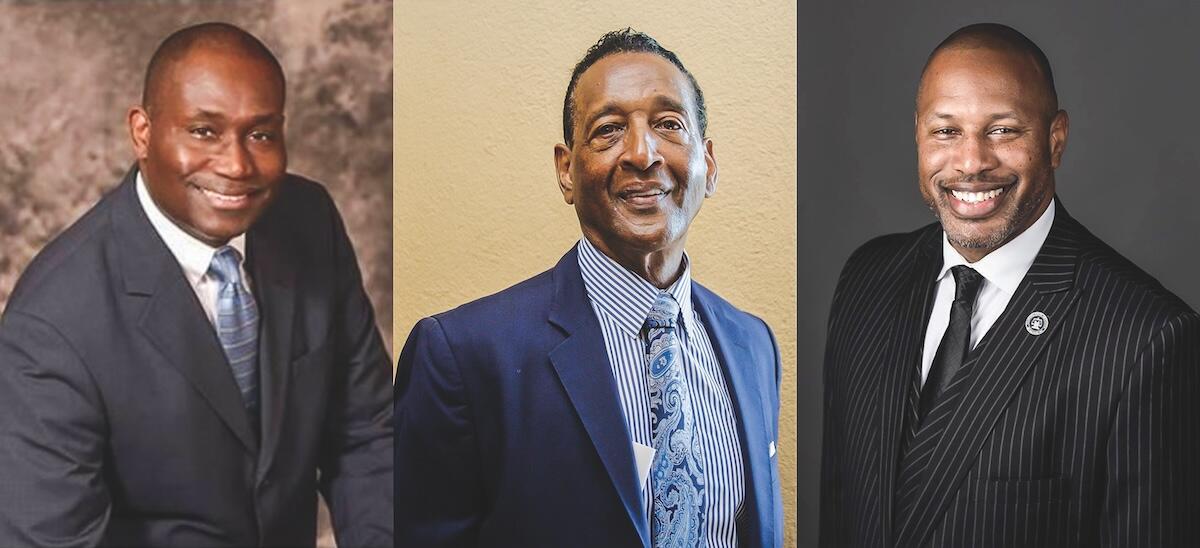The Fight for a Level Playing Field Just Got Harder

Access to higher education will be key to fostering important principles of diversity, equity, inclusion and accessibility.
- Share via
In the recent six-to-three U.S. Supreme Court decision the court’s conservative justices invalidated admissions programs at two institutions, effectively ending race-conscious admissions and making leveling the playing field considerably more difficult for diverse students.
According to Hon. Rupert Byrdsong, L.A. Superior Court judge and adjunct professor of law at the University of West Los Angeles (UWLA), “While the Supreme Court did not issue a hard rule abolishing all affirmative action programs, institutions will need to connect their diversity goals to how their students are selected,” explained Judge Byrdsong. “Historically Black Colleges and Universities (HBCUs) may see an uptick in applications as minority students seek environments that do not factor race into evaluating a student’s potential, as the pool comprises primarily African Americans.”
Why Affirmative Action Matters
Diversity, equity, inclusion and accessibility (DEIA) continue to be a goal. Colleges and universities foster social change, and is where the next generation of leaders are cultivated. That is why access to higher education is crucial to fostering important principles of DEIA. By removing affirmative action, disadvantaged students face a steeper climb towards higher education.
Robert W. Brown, president of UWLA’s School of Law and School of Business, points out that before the landmark civil rights case, Brown v. The Board of Education, the doctrine of separate but equal created a social construct of educational racism. “The only purpose of separate but equal was to ensure preferential treatment for dominant members of our society at the expense of others,” he stated. “The current court’s reversal of affirmative action is, in my opinion, particularly hypocritical. Before Brown v. Board of Education, it was okay to keep people out, but now the court is saying it’s no longer appropriate to level the playing field.”
Dr. Anthony Culpepper, president of Los Angeles Southwest College and recent UWLA Juris Doctorate recipient, agreed. “One thing we know is that the hearts of man don’t change quickly,” he said. “That’s why we must have structures that mitigate as much implicit bias as possible.
Historically, persons of color have been excluded from elite institutions of higher learning because of their backgrounds and ethnicity - that is why we must ensure equity in access to education.”
The Power of Diversity
DEIA principles are both the right thing to do and highly beneficial. “I believe the problem with the think-tank against affirmative action admissions policies is a fundamental misunderstanding of the value of diversity,” Judge Byrdsong proffered. “It’s much like cooking a stew. Which recipe tastes better? The one that is only seasoned with salt or the one that has garlic, cumin, Italian seasoning, pepper and curry?
“Diversity does not mean that you replace the traditional demographic of white males with people of color. Diversity means bringing others to the table so everyone can learn from each other. Inclusiveness means adding to the pool, not taking away from it. Everyone benefits from the diversity.”
Dr. Culpepper is equally passionate about diversity, informed by his childhood growing up in L.A. during significant civil unrest.
“My abiding belief in diversity, equity and inclusion stems from the values instilled in me by my parents and grandparents, who emphasized the importance of education and the responsibility to improve one’s community,” he said. “As President of Los Angeles Southwest College, I am staunchly committed to helping shape the community. I believe in the power of education, so I have positioned our institution to help underserved students better their lives.”
President Brown is also dedicated to meeting the higher education needs of diverse student populations. He believes education is a crucial equalizer and that by democratizing education, UWLA can make a real and meaningful difference. “My vision has been to open the educational doors to students who might not otherwise have the opportunity to pursue their academic dreams,” added President Brown.
“I’m especially proud of our track record as Los Angeles’ premier Black-owned, for-profit university, where we have educated thousands of lawyers, business students and other professionals, often from disadvantaged backgrounds.” HBCUs and smaller for-profit colleges like UWLA, that focus on providing opportunities for underserved communities are vitally important. These institutions have a proven track record of bringing greater diversity and inclusion to higher education.
Judge Byrdsong stated that “diverse views bring about a superior product, a wellinformed and open-minded perspective necessary to solve the myriad of problems and issues we face today,” he concluded.
“Think about the feeling of experiencing something new and different. If you can appreciate how awesome it is to be exposed to new ideas and situations, diversity will be the default desired outcome.”